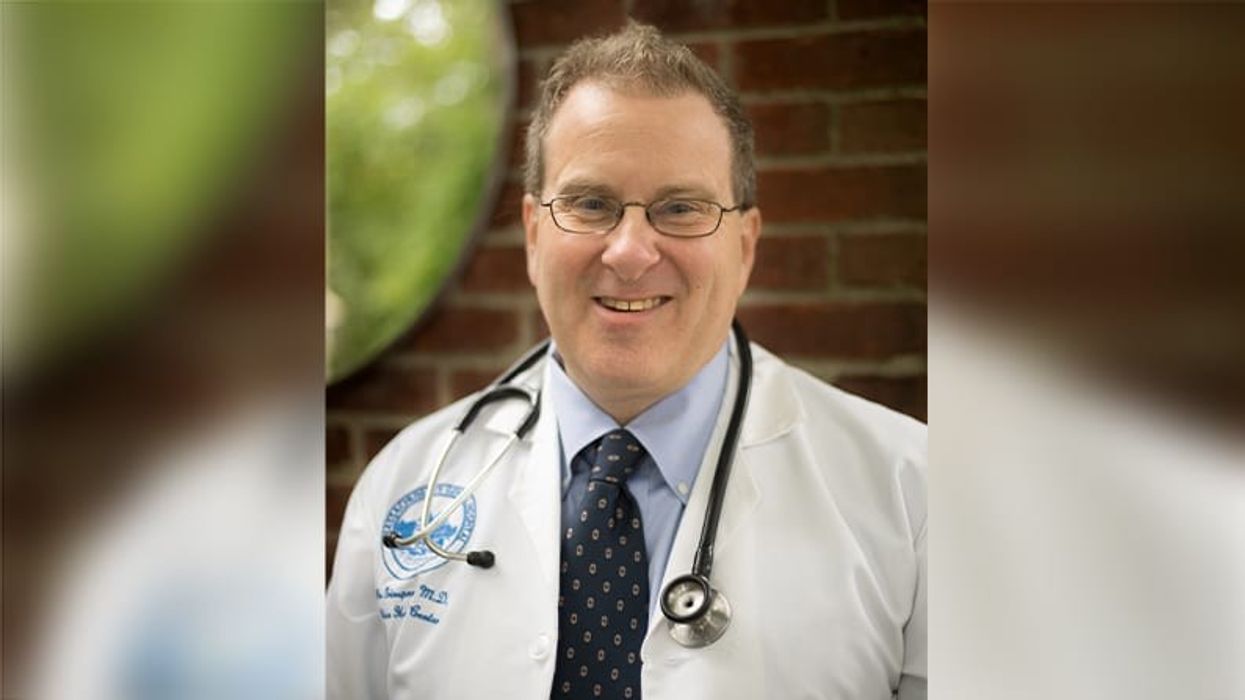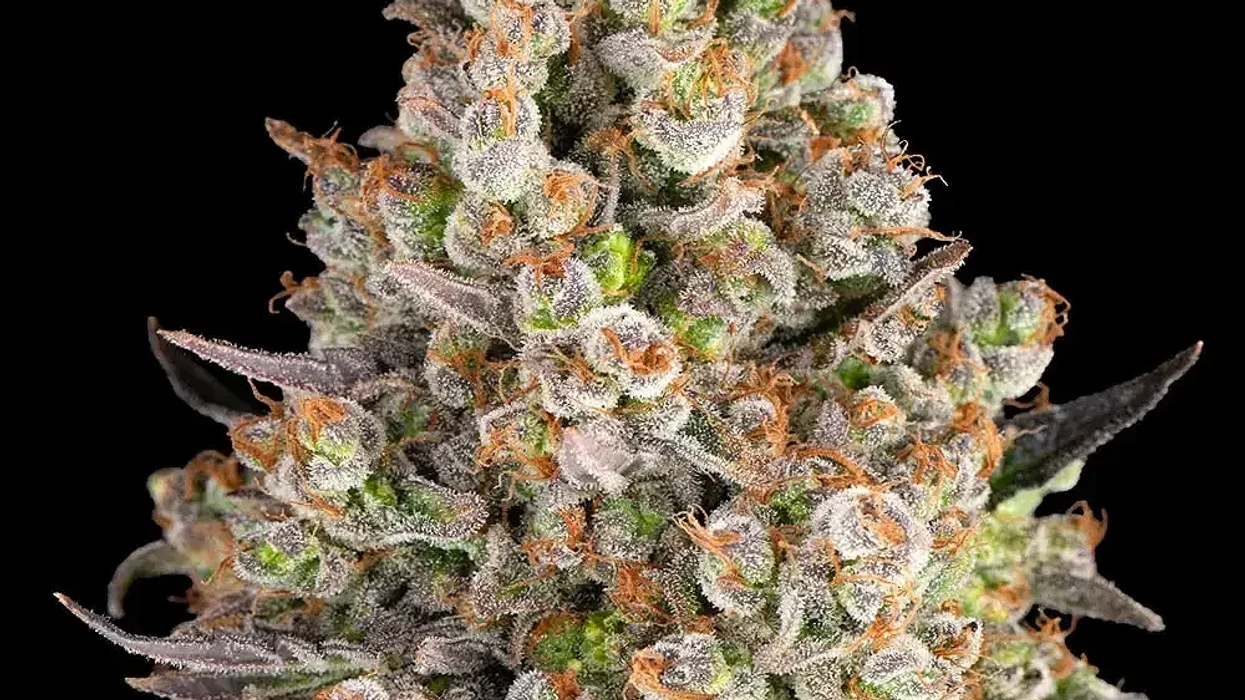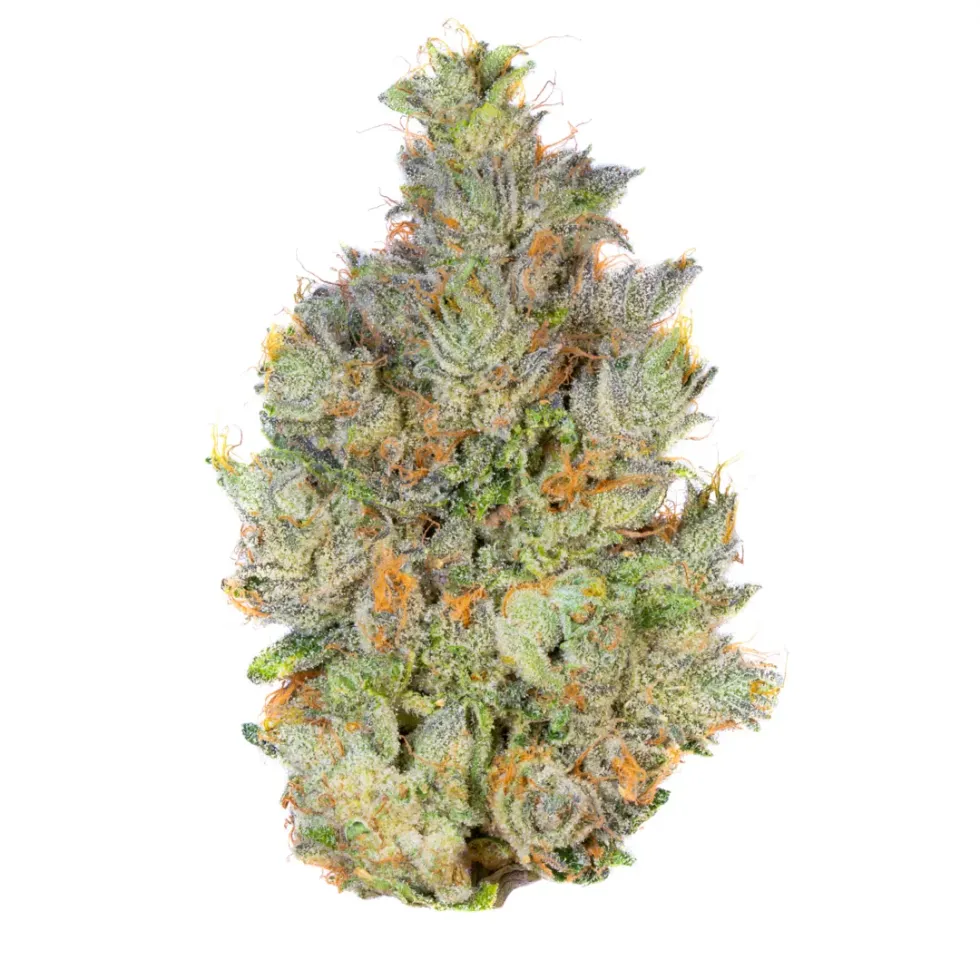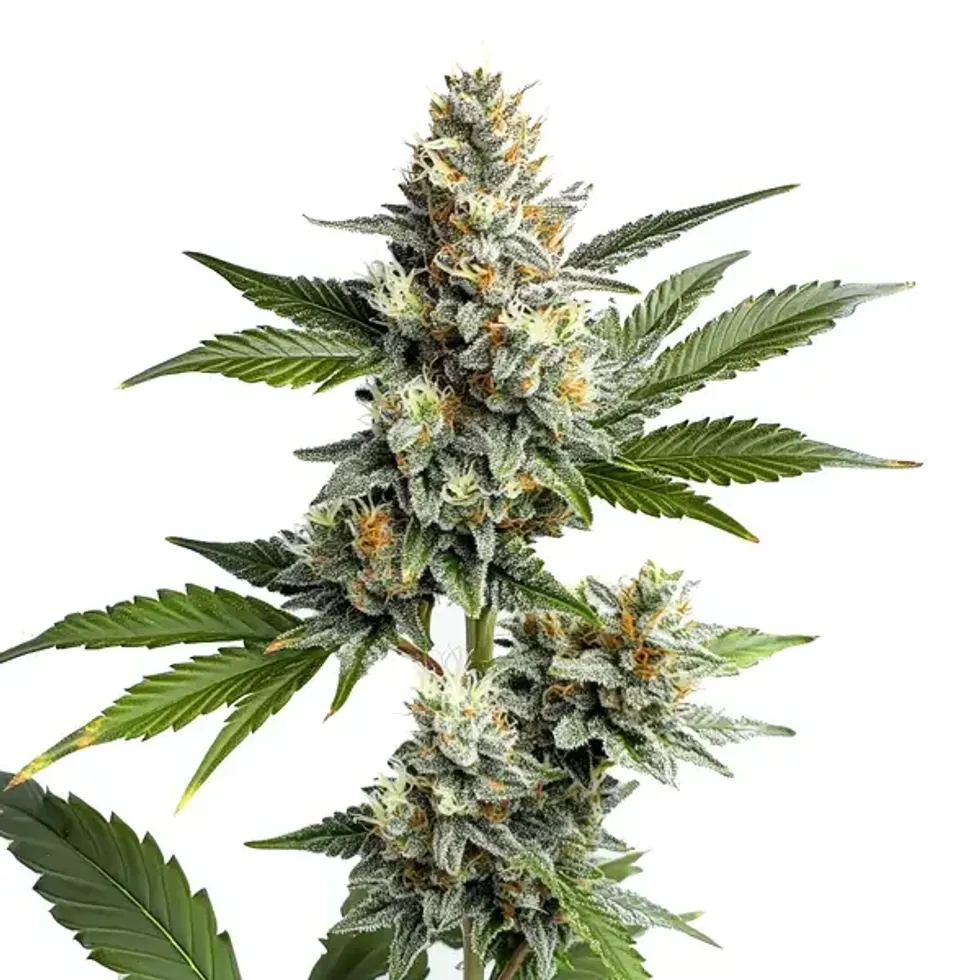Peter Grinspoon, MD, was first introduced to cannabis at the age of seven. His brother Danny was battling leukemia, and although he would ultimately lose the battle, the cannabis helped mitigate the miserable side effects of the chemo.
In fact, the cannabis had improved Danny’s quality of life enough that the boys’ father, Dr. Lester Grinspoon, a renowned psychiatrist and Harvard professor, started asking questions about the government’s continuous stream of anti-cannabis propaganda.
Lester’s response was the 1971 book Marihuana Reconsidered, which got a lot of media attention at the time. It was enough to land him on President’s Nixon’s list of enemies. Today, Peter has a framed page from a White House briefing, where Nixon made a crooked note about Grinspoon being one of these “Jew psychiatrists" he was so worried about.
Nixon was so hung up on a war against cannabis – suggesting booze as the better alternative – that he would go on to bury the Shafer report, which included thousands of pages of scientific evidence suggesting cannabis be decriminalized.
Instead of following the guidance of his own commission, Nixon obscured the truth and forced cannabis into the schedule I category, along with LSD, psilocybin, and other substances, so he could lock up his political enemies.
Enemies of the State Smoking Weed in Your Living Room?
Meanwhile, in the Grinspoon household, a whole other cannabis narrative was playing out. Prolific intellectuals like Carl Sagan and Allen Ginsberg were holding regular smoke sessions in Peter’s living room.
“[Sagan] actually wrote the most powerful chapter in my dad's book, Marihuana Reconsidered, but it was under the name Mr. X, because he wasn't out of the cannabis closet,” Peter says.
“After he passed away, my dad made it public that he was Mr. X and anybody who hasn't read that essay by Carl Sagan should read it, because if there's ever any doubt that cannabis can stimulate creativity and intellectual discovery, this chapter that Carl wrote will put an end to that doubt.”
You can actually read the Carl Sagan cannabis essay right here.
“It's just the most phenomenal chapter, a short essay about how he would smoke and then he'd have all these ideas and he'd write them down because he thought that cannabis would suppress our left brain so that our right brain, which is the creative part of our thinking, would really flourish,” Peter says.
“And then the next day [Sagan] would have to go back and edit the ideas, some of which were nonsense and some of which were very profound insights that he never would have gotten without the cannabis. So, it wasn't like every single thought he had was brilliant, but some of the thoughts he never would have achieved otherwise.”
Peter remembers his dad’s friends smoking all the time at the house, a regular plume of illegal cannabis smoke intertwined with deep thoughts and serious conversation. “I can’t even convey how deep and intellectually charged the atmosphere was in my house,” he recalls.
Do Not Lie to Teens About Drugs
The cognitive dissonance came when Peter’s school started to teach about all the scary dangers of “marijuana.” This was a strange contrast from what he’d witnessed at home. And Peter quickly sensed that his own firsthand observations with cannabis were “a bit more compelling than the pre-fabricated anti-drug messages.”
Looking back, Peter sees these anti-drug programs as tragic. “There are some drugs that have some really serious dangers that teens need to learn about, and with the whole DARE program, they just lied so blatantly about cannabis,” Peter says.
The problem with this is that when teens experiment with cannabis only to find they’ve been lied to, they can no longer believe anything around drug education, including important messages about substances like alcohol, cocaine, or heroin.
“If you're going do drug education, tell the truth; don't lie to the teenagers. The minute you blow your credibility, it's gone, the teenager is never going listen to you again,” Peter says.
“I don't get where they came up with the idea, ‘let's lie to teenagers about cannabis and then that'll stop them from using it’. It's the most brain-less thing I've ever heard of, and it has completely backfired.”
Criminalizing Drugs is Harmful, Insane, and Stupid
When Peter wears his physician’s hat, he has to be careful about encouraging people to explore chemically-induced altered states. When wears his human being hat, however, different story.
After all, there is has never been a society 100 percent free of mind-altering substances. It’s part of who we are.
“There’s a strong argument that [mind-altering substances] have been part of our cultural and religious history since the beginning. This jihad we’ve had against all drugs is absolutely ridiculous,” Peter says.
“People should be allowed to experiment. And as long as they're doing it in a responsible way, and they're not harming anybody, there's really nothing wrong with it as long as people are educated about the potential side effects and the harms.”
The ideas of criminalizing drugs, he continues, is absolutely insane.
“Drugs are not a law enforcement issue. Law enforcement makes everything worse. If people get into trouble with drugs, it should be handled by doctors, nurses, social workers, public health officials, not by law enforcement,” Peter says.
“And how does it help any situation, ever, to give people a criminal record? It just leads to more criminality and to desperation, which will make you even more dependent on drugs. You treat people with compassion, empathy, and treatment if they need it.”
A Doctor Confronts His Own Addiction
Peter knows what it’s like to be gripped in the throes of addiction. He even wrote a book about his experience, Free Refills: A Doctor Confronts His Addiction.
Peter seemingly had everything in life, including an addiction fueled by a “daily boatload of prescription meds.”
After the police caught up with him, Peter’s world came crashing down. Once he recovered, he began using his medical expertise and his own journey with substance abuse to help others.
“In respect to addiction, I do my best to de-stigmatize it. I make no secret about the fact that I was addicted to opiates, and especially among healthcare workers, it's so stigmatized,” Peter says.
“And because of that, a lot of people suffer in silence and it's just awful, and we have such a punitive reaction to it. The doctors and nurses get punished instead of treated when and if they ask for help, which is the exact wrong way to go about it.”
The danger is when people feel like they can’t ask for help, Peter adds. Whether they’re drinking before work, or abusing pills on the regular, what is a person supposed to do when they sense they’ll be stigmatized or punished if their secret gets out?
Conversely, if somebody does get help, there should not be any danger. They’re monitored, treated, and can tell you if they’re having trouble.
A lot of people struggle with addiction and its associated stigmas, including health professionals, which is why Peter works so hard to shift mainstream thinking around addiction and mental health.
“Anybody can get addicted. If you're friendly doctor can get addicted, then believe me, anybody can.”
Part of Peter’s compassion revolves around recommending medical cannabis as a harm reduction tool when necessary.
“No substance is free of any harm, and yeah, sometimes [I use cannabis] in my practice for harm reduction. If you could get someone off of alcohol and on to cannabis, that's a big win,” Peter says.
In a perfect world, he says, everyone would exercise, meditate, and eat nutritiously, but we don’t live in a perfect world, and most people need something. “If you could steer people towards the least harmful substance [being cannabis], that's a huge win. Harm reduction is a huge belief of mine.”
Replacing Misguided Morals with Compassion and Science
The misguided morality around substance use and addiction in the U.S. had a created a toxicity, which is costing lives.
As Peter puts it, many people look upon addicts and assume they are these happy hedonists, when in reality they are miserable and need treatment.
“I’ve been there; I know what it's like, and punishing people is the worst thing you could do, it's like adding plutonium onto the fire, and we just need a complete attitude change about this,” Peter says.
“We have a spectacular model of how not to do it in the U.S., millions of people in prison for no reason, rotting away for non-violent crimes, [plus] huge overdose rates on synthetic opiates. If drugs were legal, nobody would be dying. I don't understand what's so complicated about that.”
While Peter is concerned about all the Drug War propaganda, lying to people about the nuances of substances, and sees the logic and decency of establishing safe access and decriminalization, he also doesn’t want to encourage a “free for all” with these substances via legalization.
One of his hottest takes for cannabis and all substances is a flat-out ban on advertising. Alcohol, cannabis, tobacco – from a public health standpoint, why advertise any of it? Same thing with pharmaceuticals. What’s the public health logic of advertising those?
“I'm in the office all the time, and patients see these things on TV and they're like, Oh, I hear that this drug does this, and I'm like, but your health insurance won't pay for it because it's like 50000 times more expensive than drug B that does the same thing, and they forgot to tell you that it does X, Y, and Z, which is really horrible,” Peter would say.
“It's so misleading, the advertising, so I just... I think we need to legalize these things and educate people with real education.”
Are you still missing out on The Bluntness newsletter? Sign Up today to stay in the loop.







 11 Signs You've Greened Out and How to Handle It - The Bluntness
Photo by
11 Signs You've Greened Out and How to Handle It - The Bluntness
Photo by  11 Signs You've Greened Out and How to Handle It - The Bluntness
Photo by
11 Signs You've Greened Out and How to Handle It - The Bluntness
Photo by 






 The Truth About THC Candle: Cannabis Candles & How to Make Your Own - The Bluntness
Photo by
The Truth About THC Candle: Cannabis Candles & How to Make Your Own - The Bluntness
Photo by 
 OG Kush Strain: The West Coast Classic That Defined a Generation - The BluntnessAlien Labs
OG Kush Strain: The West Coast Classic That Defined a Generation - The BluntnessAlien Labs OG Kush Strain: The West Coast Classic That Defined a Generation - The Bluntness
OG Kush Strain: The West Coast Classic That Defined a Generation - The Bluntness
 What will you do with that cannabis kief collection? - Make Coffee! The Bluntness
What will you do with that cannabis kief collection? - Make Coffee! The Bluntness DIY: How to Make Kief Coffee - The Bluntness
Photo by
DIY: How to Make Kief Coffee - The Bluntness
Photo by 